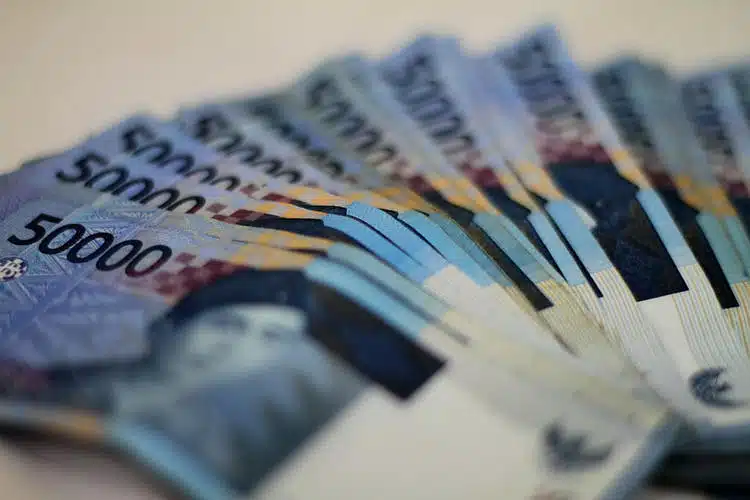The Indonesian Rupiah has declined by 0.7% against the US Dollar this month, making it the biggest decliner among major Asian currencies. Despite this, economists at TD Securities remain positive about IDR’s future prospects.
The Bank of Indonesia (BI) seems unworried about the current state of the currency and has reiterated its stance that it stands ready to intervene to stabilize the currency. This gives investors confidence that the BI will take appropriate measures if necessary to prevent drastic fluctuations in the currency.
TD Securities remains constructive on IDR as real yields are positive across the curve which should attract bond inflows, increasing demand for IDR and potentially bolstering the currency’s value. Positive real yields mean that bondholders can earn a return on their investments after accounting for inflation. Higher nominal yields also attract foreign investors. As more investors buy Indonesian bonds, they exchange their currency for IDR, which creates additional demand for the currency and can drive up its value.
Furthermore, TD Securities highlights the potential challenges in volatile markets, which may lead to hesitation in going short on USD/IDR. In short, going “short” means that traders are betting on the value of the USD/IDR to decrease. However, given the current unpredictable nature of the markets, TD Securities prefers to wait before taking further action.
In addition to positive real yields, there are other factors that support a positive outlook for IDR. For instance, Indonesia has been able to maintain relatively high economic growth levels compared to other countries in the region. According to data from the World Bank, Indonesia recorded a GDP growth rate of 5.02% in 2019, placing it behind only the Philippines and Vietnam among Southeast Asian economies.
Furthermore, the country has a large and growing middle class, which could help spur consumer demand for goods and services in the coming years. This could lead to increased foreign investment in Indonesian businesses, which would further support the currency.
Another potential factor that could give IDR a boost is the government’s push for infrastructure development. Despite some setbacks and delays, the government has been committed to investing in transportation, energy, and other infrastructure projects in recent years. These initiatives could help improve the country’s productivity and competitiveness while also creating jobs and attracting foreign investment.
However, there are also risks that could threaten IDR’s positive outlook. For example, Indonesia is heavily reliant on exports, particularly commodities such as coal, palm oil, and natural gas. A downturn in global demand for these commodities could negatively affect Indonesia’s economy and the value of its currency.
Furthermore, the country’s current account deficit, which represented 2.7% of GDP in 2019, could be a cause for concern. The current account deficit occurs when imports exceed exports, creating a shortfall in the balance of payments. This can put downward pressure on the currency and make it less attractive to foreign investors.
The COVID-19 pandemic has also had an impact on Indonesia’s economy and currency. The country has seen a surge in cases and has struggled to contain the spread of the virus, prompting the government to impose restrictions on businesses and travel. These measures have had a negative impact on economic activity and could continue to weigh on the currency.
In conclusion, while the Indonesian Rupiah has experienced some recent declines, economists at TD Securities remain constructive on the currency’s future prospects. Positive real yields, potential infrastructure investments, and a growing middle class are all factors that could continue to support IDR’s value. However, risks such as a dependence on exports and a current account deficit could threaten its positive outlook. Ultimately, investors should closely monitor developments in these areas to make informed decisions about investing in IDR.


